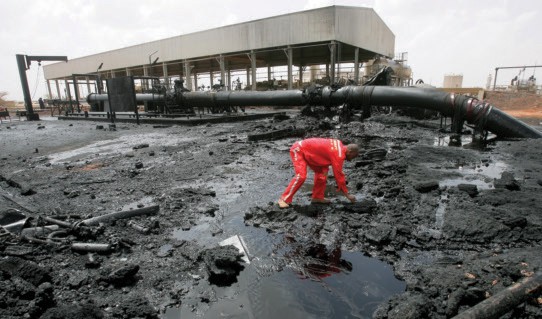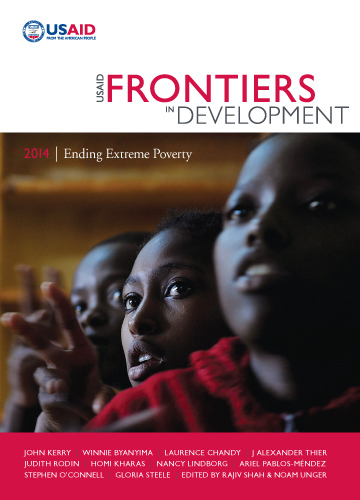Winnie Byanyima
We live in a world of extremes. Too many still toil in extreme poverty. On the other extreme, income and wealth are increasingly concentrated in fewer and fewer hands. In January 2014, Oxfam found that the 85 richest people owned as much wealth as the bottom half of humanity, 3.5 billion souls.1 And that figure has reduced: Today just 66 people own the wealth of half the world.2
New billionaires are emerging in all corners of the globe. If poverty is declining, then why should we concern ourselves with the growing concentration of income and wealth at the top? Why should we worry about inequality?
The first reason is arithmetic. Many developing countries have achieved high rates of economic growth. But the more unequal a country, the less the benefits of growth tend to flow to the bottom of the economic pyramid.3 In theory, the wealthiest might reinvest their income into productive enterprises and drive economic growth.

In practice, however, the wealthiest seek investment opportunities outside of their countries, hiding assets and seeking the safety and anonymity of tax-haven bank accounts. Oxfam estimates that at least $18.5 trillion has been burrowed away by wealthy individuals, depriving governments of more than $156 billion in tax revenue.4 The missing money is twice the amount required for every person in the world to be living above the $1.25-a-day “extreme poverty” threshold.5
Second, economic growth itself is undermined by high rates of inequality, as shown in new research by organizations including the International Monetary Fund.6 The mechanisms for reducing poverty are hurt when the benefits of growth are not broadly shared. Highly unequal societies offer less opportunity for people to improve their situations. Income mobility—the ability to improve one’s station through hard work and talent—is lower in unequal countries.
This means that millions of people face low prospects for self-improvement for themselves and their children, destroying human and economic potential. When economic growth is stifled in highly unequal economies, it’s the extremely poor who pay the greatest price.
Third, we must recognize that the shape of poverty is changing. Most poor people no longer reside in poor countries. Most of the poorest people live in middle-income countries, like China, India and Brazil, that have achieved economic growth, have competent and functioning governments and have burgeoning middle classes.
Yet poverty remains. For these countries, the challenge of eliminating extreme poverty is different. Issues of national inequality, distribution of benefits and government interventions are much more acute in these contexts.
At the same time, we should recognize that poverty and inequality have important gender dimensions. There is clearly a considerable gap in the economic conditions and opportunities of men and women. This gap is linked to: women’s relegation to the worst-paid and most insecure jobs—the global wage gap is such that it will take 75 years to achieve “equal wage for equal work”; women’s almost-universal responsibility for care work; and laws and practices that limit women’s ownership of assets and wealth.
Thus, gender inequality drives poverty and undermines economic growth. For this reason, it is both socially just and imperative that the transformative changes we seek promote opportunities for and access to decent work for women and encourage women’s influence and decision-making over markets, policy and household spending.
President Obama has called inequality “the defining challenge of our time.” He also has committed to help eradicate extreme poverty. I believe we must take these issues on together.
The agenda for action starts in developing countries, but it does not end there by any means. A good example of this is in the extractive industries sector, where action is needed globally. We know that vast mineral and energy wealth will be brought to the surface from African countries in the next two decades. This wealth could be converted into economic infrastructure, human capital and improved social progress in some of the poorest countries on Earth. Or it could be wasted, lost or squandered.
African governments, working with citizens, must rapidly build their expertise to assess and manage their natural resources. They must create transparent and accountable systems to manage their resources and the income that comes with their development. Ghana’s Petroleum Revenue Management Act is a good example of how targeted regulation can promote shared prosperity.
The United States and other countries must play their part. For example, improved transparency and disclosure by oil and mining companies will help shareholders and the public ensure fair play, good business practices and accountability. This information helps keep everyone honest and can enable African governments and citizens to better understand deals and make sure they are fair and beneficial. This information will also help to keep the sticky fingers of politicians and bureaucrats off of the piles of money that are meant for citizens. Resource booms create great risks of exacerbating income inequality—but it doesn’t have to be this way.
Improving tax systems and tax transparency is also vital. Secretive tax havens facilitating the hemorrhaging of income and assets from poor countries must be shut down. The United States and other G-8 countries promised to take action on this in 2013. In addition, strong programs for public services and social support must be built to ensure that the benefits of economic growth are shared.
The agenda to end extreme poverty should be matched with an agenda to end extreme and growing economic inequality. Both are historic challenges, and neither is likely to be overcome in isolation. Solutions will be synergistic: Economic growth helps to pull people out of poverty, while reduced inequality increases economic growth.
For the people living in extreme poverty, climbing a few steps on the economic ladder can be the difference between sickness and health, life and death. But having an unobstructed path to the top, a chance to hope and dream, is the difference between surviving and living.
Winnie Byanyima is executive director of Oxfam International. The views expressed in this essay are her own and do not necessarily represent the views of the United States Agency for International Development or the United States Government.
1 Oxfam, Working for the Few, January 2014, p. 2. (http://www.oxfam.org/sites/www.oxfam.org/files/bp-working-for-few-politi... inequality-200114-en.pdf )
2 Kasia Morena, Forbes, “The 67 People as Wealthy as the World’s Poorest 3.5 Billion,” March 25, 2014. See: http://www.forbes.com/sites/forbesinsights/2014/03/25/the-67-people-as-w... 3-5-billion/
3 Martin Ravallion, “Inequality is Bad for the Poor,” World Bank Development Research Group, 2007. See: http://siteresources.worldbank.org/INTPOVRES/Resources/Inequality_is_bad...
4 http://www.oxfam.org/en/eu/pressroom/pressrelease/2013-05-22/taxhavens-p...
5 Laurence Chandy and Geoffrey Gertz, “Poverty in Numbers: The Changing State of Global Poverty from 2005 to 2015,” Brookings Institution, January 2011, estimates that bringing everyone to a minimum of $1.25/day would take $66 billion in 2010. Note that this estimate was made before recent price data from the International Comparison Project that may lead to dramatically reduced global poverty estimates and would therefore reduce the transfers needed to bring all people to $1.25/ day. See http://www.brookings.edu/blogs/up-front/posts/2014/05/05-data-extreme-po...
6 Andrew Berg and Jonathan Ostry, “Inequality and Unsustainable Growth: Two Sides of the Same Coin?” IMF, April 8, 2011. See http://www.imf.org/external/pubs/ft/sdn/2011/sdn1108.pdf and Jonathan Ostry, Andrew Berg and Charalambos Tsangarides, Redistribution, Inequality, and Growth, IMF staff discussion note, February 2014. See: http://www.imf.org/external/pubs/ft/sdn/2014/sdn1402.pdf
Frontiers in Development
Section 1: Understanding Extreme Poverty








Comment
Make a general inquiry or suggest an improvement.